ARTICLES BY CATEGORY: Generating Income
-


Case Study – When to Start Receiving OAS Benefits
By Bryn Hamilton on 11 Jul 2024
Government benefits are often an area that gets confusing for Canadians as they plan for retirement.
-

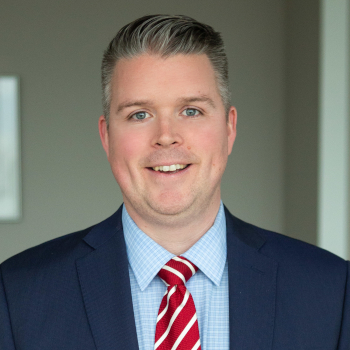
Winning By Not Losing
By Christian White on 21 Apr 2023
Nostradamus does not work on Wall Street (it would be nice if he did!). The idea that the best investment managers have a crystal ball is not accurate.
-


Tapping Your Portfolio for Some Quick Cash
By John Hale on 12 Jan 2023
Given the high inflation we have all experienced over the last 12 months, it comes as no surprise that many household budgets are being pushed to their limit.
-


Case Study: Retirement Investing for Small Business Owners
By Linson Chen on 07 Oct 2022
You have excess cash that is accumulating in your corporation that you do not need for personal or business purposes.
-

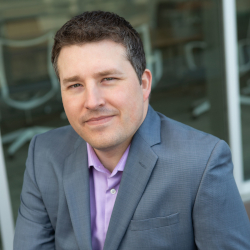
What You Need to Know about Dividends
By Daniel Sitar on 07 Oct 2022
If you own stocks in your investment portfolio – either directly or through mutual funds or exchanged traded funds – you are a part owner in multiple businesses.
-

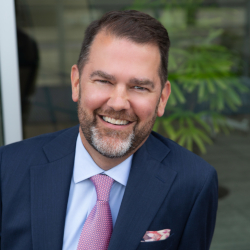
The Tale of Two Inflations
By Bryson Milley on 28 Apr 2022
Over the past few months, there has been a growing rumble of conversation about inflation. Most people know what inflation is but understanding the root cause of inflation can be something different.
-


Behavioural Finance
By Brent Vandekerckhove on 06 Oct 2021
The investment world is based on decisions humans make regarding money every day – some decisions lead to positive outcomes, and others have negative results.
-


The Impact of Foreign Exchange Rates on Investment Returns
By Nick Hearne on 06 Oct 2021
When we think about the value of the Canadian dollar (CAD) in relation to other currencies, our first thought is often our buying power when we travel abroad.
-


What Is a “Return”?
By Alain Quennec on 26 Jul 2021
There’s an old investment joke that goes, “Do investors care more about the return on their investment or the return of their investment?” We want growth plus our original investment back to us, don’t we?
-


Can You Tilt the Odds in Your Favour?
By Christian White on 29 Apr 2021
It can be difficult not to jump into these high-flying stocks that we see day to day in the media.
-
.jpg?sfvrsn=c3ba1ca4_0)

When Should You Start Receiving Your CPP Retirement Pension?
By Doug Runchey on 07 Jan 2021
Since 1987, when the Canada Pension Plan (CPP) first introduced flexible retirement pension start dates, this has been one of the most common questions that I get asked...
-


Choosing an Investment Fund
By Bryn Hamilton on 24 Jan 2019
For the purposes of this piece, we will be focusing on managed money and, in particular, mutual funds. An investment advisor who chooses investment funds on behalf of a client is implementing what’s called Overlay Money Management.&nbs
-


How Small Things Can Make a Big Difference
By Brett Simpson on 22 Oct 2018
After thirty-five years of financial advising, I would like to share some insights I’ve recognized as important ingredients in effective integrated wealth management.
-


Maintaining your Retirement Capital
By Daniel Sitar on 02 Oct 2017
Everyone has different goals and expectations for their retirement. Likewise, everyone has a different level of financial resources they can use to achieve these goals.
-

Q and A: What is an annuity and how does it work?
Posted on 03 Jul 2017
A life annuity is a financial vehicle that allows you to exchange a lump sum of capital for a guaranteed income for as long as you live (or you and your spouse or partner lives).
-


Pools and Streams – Retirement Income
By Alain Quennec on 03 Jul 2017
Louise is retiring soon, and it just dawned on her that she isn’t clear what’s going to happen to her cash flow after the regular paycheques stop coming in. I find this a great source of concern among the nearly-retired...
-

Q and A: My wife recently died and I am not clear on how this will change my government benefits or my income tax situation.
Posted on 03 Apr 2017
Answer: One of the major implications for you will be that you will no longer be able to split pension or RRIF (Registered Retirement Income Fund) income on your income tax returns.
-


Keeping More of what you Earn
By Christian White on 03 Apr 2017
You’ve saved long and hard for many years. You’ve made sacrifices and put your long-term needs ahead of your current desires for that vacation, the newer car or upgrading the kitchen.
-


Preferred Shares
By John Hale on 03 Oct 2016
It's no secret that today's low interest rate environment poses a real challenge for Canadian.
-


2016 Horizons Report
By Clay Gillespie on 01 Jul 2016
We are pleased to present the results of the 2016 Horizons Retirement Report. This report summarizes the dreams, fears, hopes and challenges of Canadians planning to retire within the next 3 to 7 years.
-


Building your Financial Future
By Bryson Milley on 01 Apr 2016
One of the most regular questions I’m asked by retiring clients is, “How do we manage our investments once we’re retired?”
-

Human Capital and the Financial Life Cycle
Posted on 01 Jan 2016
Take a moment to think back to the day you got your first job. At that time, you likely had minimal financial assets and no real estate...
-


Quantifying the Value of Advice
By Alain Quennec on 01 Oct 2015
Earlier this year, the investment firm Vanguard released the results of a major study attempting to quantify the value of financial advice to investors.
-

Retirement Income Planning
Posted on 01 Jul 2014
During your working life, you may have had one or two sources of income with limited ability to manage the timing of cash flows.
-


Going Viral
By Cory Hill on 01 Apr 2014
Recently, there was a study done by Princeton’s Department of Mechanical and Aerospace Engineering on, of all things, the life cycles of social media.
-

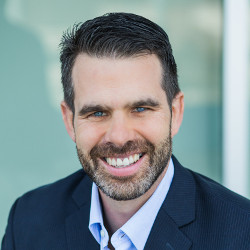
Beyond the RRSP
By Mark Neufeld on 01 Apr 2014
When you require income from your RRSP, a Registered Retirement Income Fund (RRIF) may be appropriate for you.
-

Global Investing and the Winter Olympics
Posted on 01 Apr 2014
Like most Canadians, I spent many hours in front of the television this February, eyes glued to the spectacular Olympic Games.
-


Aligning your Goals
By Cecilia Tsang on 01 Apr 2014
Is your portfolio the result of your goals (or lack thereof)?
-

Protect Yourself
Posted on 01 Jan 2014
If an investment you're interested in has the characteristics of one of the five warning signs below—it’s okay to say ‘no’.
-


ETF or Mutual Fund, What's the Difference?
By Alain Quennec on 01 Jan 2014
Most investors leave the choice of selection of individual stocks and bonds to a dedicated professional team whose full-time efforts are dedicated to that task.
-


The One Thing
By Brett Simpson on 01 Oct 2013
In the 1991 movie “City Slickers”, Curly (Jack Palance) asks Mitch (Billy Crystal): “Do you know what the secret to life is?”
-

Don't Outlive Your Capital
Posted on 01 Oct 2013
The oldest “official” living person in the world is now 115 years old, although there was a recent unofficial report of a 127- year- old lady in China.
-


Horizons Retirement Report 2013
By Clay Gillespie on 01 Jul 2013
We’ve just completed the 2013 edition of the Horizons Retirement Report. This survey is done with Canadians who are approaching retirement.
-

Personal Corporations and Retirement Income Planning
Posted on 01 Apr 2013
Many of our clients who operate a small business or professional practice in law, medicine, real estate, or accounting will be incorporated.
-

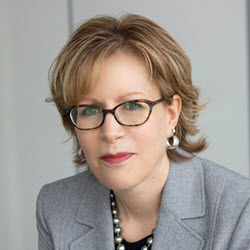
Women Provide Investment Lessons
By Teresa Black Hughes on 01 Apr 2013
Women are often personally connected to the object and process of learning. Their sense of identity, self-esteem, social world and power affect how they learn.
-


How to Access Equity from Your Principal Residence during Retirement
By Clay Gillespie on 12 Apr 2024
For many British Colombians, a large amount of their net worth is tied up in the equity of their principal residence. There are four main avenues to access this equity - all with some advantages and disadvantages
-

In for a Penny, In for a Pound - Investing Through Volatility
Posted on 19 Jul 2022
Recently, we have been surrounded with news about a slowing economy and central banks raising interest rates in an attempt to lower inflation. This level of uncertainty in the economy has sparked a lot of volatility in capital markets.
-


The Power of Compounding
By Daniel Sitar on 15 Apr 2021
According to Albert Einstein, “compound interest is the most powerful force in the universe.”
-


Preserve and Improve your Credit Score
By Nick Hearne on 17 Nov 2020
A solid credit score is your endorsement as a desirable borrower, providing you with access to capital at better rates, saving you considerable interest costs and helping you achieve your financial goals.
-


The Basics of REITs
By Daniel Sitar on 15 May 2019
Nearly 70% of Canadians own the property they live in. These individuals have a significant investment in residential real estate in the form of their home.
-


Sequence of Returns Risk
By Nick Hearne on 17 Sep 2018
Most investors understand that to achieve their long-term target rate of return, they will need to accept some volatility in the short and medium term.
-


Holiday conversations…
By Mark Neufeld on 19 Dec 2017
As we approach the holiday season, you’ll hopefully find some time to spend with family and/or friends. Many conversations will be had and some may be about that overdone turkey and some may even be about the investment markets.
-


What is responsible investing
By Linson Chen on 03 Dec 2017
Responsible investing (also known as ethical investing and socially responsible investing) is growing in popularity as more investors are seeking to align their portfolios with their values.
-

How to Succeed at Retirement
Posted on 17 Nov 2017
Don't simply retire from something; have something to retire to. ~Harry Emerson Fosdick
-
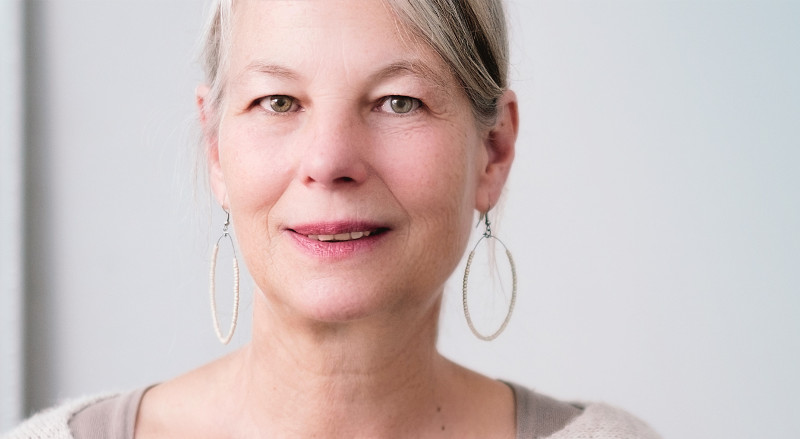

What are OAS and CPP worth?
By Clay Gillespie on 19 Jun 2017
Both OAS (Old Age Security) and CPP (Canadian Pension Plan) are government income entitlements that are meant to provide Canadians a guaranteed inflation-indexed pension for as long as they live. But what are they worth to you today?
-

Taking the Emotion Out of Investing
Posted on 17 Mar 2017
As financial advisors, a big part of our job is to guide and steer investors in the right direction when it comes to portfolio management. The goal of a typical investor, and this may come as a shock to you, is to generate a consisten
-


Income Splitting 101
By Bryn Hamilton on 17 Feb 2017
If you or your partner receive qualified pension income, the federal government’s pension income-splitting provisions could mean extra money in your pocket when you file your income tax returns.
-


Why Pessimism Is So Attractive
By Alain Quennec on 15 Mar 2016
Markets have gone through some ups and downs in the last decade, and this has caused many investors to be worried and pessimistic about the future. Throughout history, people have been apprehensive about times yet to come.
-

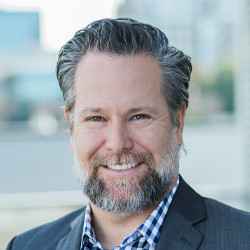
RRIF withdrawal rates
By Chris Eynon on 15 Jun 2015
-

Changes to the RRIF Minimum
Posted on 17 Dec 2014
In the year you turn age 71, you must convert your RRSP funds to a RRIF, annuity, or cash out. Converted to a RRIF, the plan must pay out a minimum of 7.38% of the value on January 1st.
-

Taxation of life insurance – new rules create opportunities
Posted on 14 Apr 2014
In November, the Department of Finance finalized their changes to the taxation of life insurance as previewed in the March 2013 Federal Budget. These changes resulted in an update to the “exempt test” which determines how much tax-def
